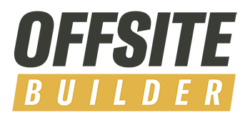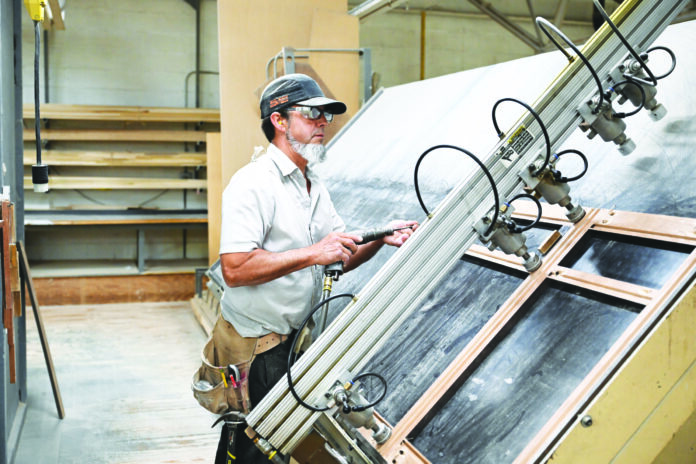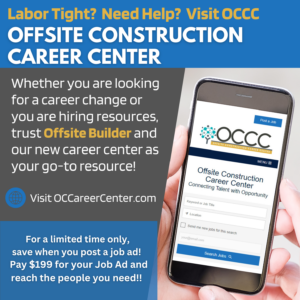Skyline Champion gets a lot of attention for its designs. Part of the reason those designs succeed is support from business systems that are constantly evaluated and tweaked.
- The company’s winning formula includes a focus on architecture, cost-effectiveness and the buyer experience. It’s now building full virtual capability for buyers who want it.
- It has launched a separate company to do sitework and eventually wants to move towards becoming a full-service modular builder, rather than just a manufacturer.
- Misperceptions regarding modular written into zoning codes are a barrier to affordable housing, something the company works constantly to overcome.
In the spring of 2023, Skyline Champion won the Modular Housing Design Award from MHI (The Manufactured Housing Institute) for its sixth straight year.
The company was originally founded in 1953 in Dryden, Michigan, as Champion Home Builders. Since then, it has been growing its market, acquiring other companies and earning lots of industry recognition.
It has also radically changed the way it builds. Shortly after its founding, Champion Homes entered the recreational vehicle industry with a line of travel trailers. Soon, RVs and mobile homes became the company’s primary focus. By 1970, Champion had turned its attention to developing mobile home parks and modular home communities.

In 2018, Skyline and Champion merged and formed Skyline Champion Corp., the nation’s largest publicly traded, factory-built housing company. Today, all its homes are modular. They’re distributed through a network of independent retailers, builders and developers.
“Zoning regulations drove us to enter the modular market,” says Mike Tweden, Skyline Champion’s Vice President of Sales and Business Development. “We couldn’t enter certain markets if we were building HUD code housing.” (The HUD code is a federal standard for manufactured homes.)
A second reason, according to Tweden, is that financing is more favorable for modular than for manufactured homes.
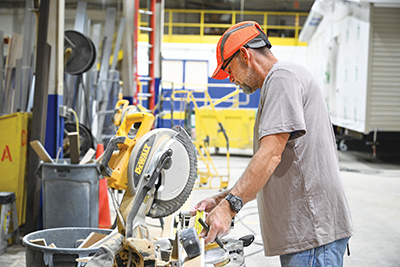
The floor plan of every Skyline Champion modular home is designed by the company, then built in its factory to the point where it is around 80% complete when it arrives to the home site. In some markets, the company handles transport and does some on-site finish work (foundation prep, garage installation, etc.)
They’re striving to do on-site construction work in more markets; in fact, they’re moving towards offering a full turnkey solution, thereby providing on-site construction to complete the final 20% of the build. To this end, in 2021 they formed Champion Construction, which is their full-service building entity. “The initial markets we chose [for this entity] were those where we had a readily available crew to do the work,” Tweden says.

He says that the growth of Champion Construction will mean less friction in the process for everyone, “since we will be able to communicate internally between build, delivery and finish out.”
Like many companies today, Champion has felt the sting of a slow-moving supply chain and labor shortages. The labor issues, especially for that part of the Mechanical, Electrical, and Plumbing work that must be completed on-site, were a factor in the formation of Champion Construction.
Zoning and Other Challenges
The stigma related to factory-built housing is also a continuing challenge. Although modular homes are generally looked on more favorably than manufactured homes, there’s still resistance.
In fact, Tweden says that local zoning ordinances based on faulty perceptions have locked modular out of some markets and that they must work constantly to counter those perceptions. “We attend events to present our homes to those who have the ability to change laws, such as zoning and planning commissions, and we try to get them to walk into one of our homes to see what we are about.”

Factual data and innovative designs are also changing people’s perceptions, but the perception change is slow to cause zoning changes, which Tweden says is the biggest barrier to being able to supply affordable housing to the places people want to live.
Rising interest rates are pricing some would-be buyers out of the market, and this has been pushing Champion to find ways to become more efficient and drive costs down. They’re using automation where possible and reexamining vendor contracts to find potential savings.
The efficiency challenge has been exacerbated by Champion’s acquisition strategy which has grown their design portfolio. The company also regularly adds its own new designs based on consumer trends and shifting markets.
The company now has thousands of designs that they are trying to fine-tune. Their cross-country product development team takes designs from concept to drafting before putting them through visual and code reviews. A prototype is then built and adjusted, after which it’s either approved and released to the market or rejected. To be approved, the company needs to confirm that the prototype can be built at a price point suitable for the market.
The engineering and design teams are fully engaged in the development process. Champion has even taken homes to international design events for feedback and suggestions. “We work to be innovative and on top of the current trends in design and materials,” Tweden says.
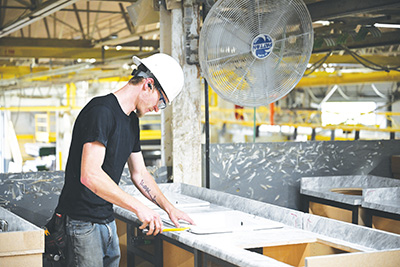
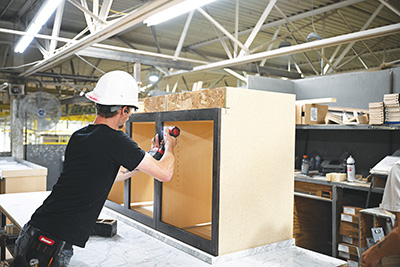
Improving the Buyer Experience
“As a company, we’re continually trying to make the homebuying process less stressful, so we’re heavily focused on improving that experience,” Tweden says.
The company is working on creating a direct-to-consumer homebuying process with full virtual capability. Today, customers can do a walk-through of a house from the comfort of their couch, but Skyline Champion is aiming to leverage technology to have everything else, including finding land and financing approval, done from the same couch.
While the company is a major player in the market, they know the challenges upstarts face, such as transport costs, staying on trend with design/home-style and amenities, and being cognizant of where the supply chain is and location to market. These are issues they continue to grapple with.
Looking ahead, Tweden and Skyline Champion feel confident. There’s a big need for affordable homes in the US and modular offers a good value proposition – good news for both the homebuyer and the investor. “The demand is there, and we think we’re well poised to help meet the market,” Tweden says. As the company tries to expand its footprint further, they remain focused on innovation, efficiency and meeting customer demands.
Larry Bernstein is a freelance writer based in northern New Jersey. All photos courtesy of Skyline Champion.
